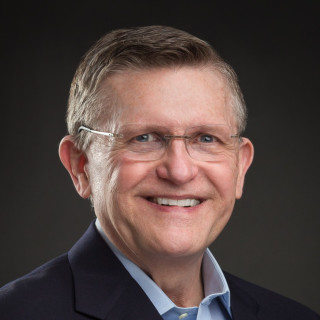Psychiatrists are trained to remain fairly anonymous to their patients, and requests for personal information are usually redirected toward exploration of transference. Therefore, the rise of social media has left many psychiatrists on the sidelines, avoiding it altogether or restricting comments to noncontroversial fact-based medical information. Some clinicians, however, wish to find ways to disseminate or support evidence-based information that can affect the health of their patients and that may be mired in misinformation with, perhaps, heated controversy.
The presentation “Mission-Based Media: Collaborative Work Concerning Controversial Topics in Psychiatry” at the 2023 Annual Meeting of the American Psychiatric Association in San Francisco featured three clinicians who shared their own experiences disseminating facts about how anti-transgender legislation, racism, and psychiatrist burn-out negatively affect health outcomes for many of their patients.
Jack Turban, MD, MHS, opened the session with illustrations of how he utilizes op-ed articles, media interviews, and social media to provide evidence-based data to the public and decision-makers. He educated participants on the three elements to include when pitching an article to editors: why you care, why it is important now, and why you should be the one to write the article. He suggested articles begin with a clinical vignette, followed by a thesis with supporting evidence, then a conclusion that returns to the vignette.
Media interviews, Dr. Turban suggested, should focus on two or three key points, which can be reiterated in response to irrelevant questions. Interviewees should also ask for “quote approval,” the opportunity to confirm that statements have been correctly described before the release of an interview in print or other media. Practitioners may also wish to investigate the integrity of a journalist’s work before agreeing to participate.
Dr. Turban also suggested that while statements made on Twitter may increase the number of contacts for a provider seeking to contribute to public knowledge, picking a narrow niche to comment on is most effective. Clinicians should also be prepared to have patients ask them about posts, have them brought up in court, and for supervisors to learn of them; therefore, we must be comfortable with everything we say in these formats.
Amanda Joy Calhoun, MD, MPH, proposed that clinicians might want to write for the public when they feel that important data is misused or ignored. She encouraged writers to avoid jargon, be clear and concise, never speak in absolutes, stay on message, know your data, avoid exaggeration, and be aware you are seeking to build relationships.
Jessica Gold, MD, shared examples of how recounting personal experiences can make a difference. She acknowledged how difficult it can be for psychiatrists to work through self-disclosure issues. Even so, her experience is that most patients are unaware of her public sharing, though she is no longer “a blank slate” to those who are. Dr. Gold advised participants that they may have to shop pitches to many journalists and editors but could also plant ideas for stories and even use other areas of expertise as a hook for getting published, as she had her interest in entertainment personalities.
All three presenters also discussed challenges and safety issues associated with the public's contribution to controversial topics, including threats and abusive responses. Scanning hate mail was recommended, as was forwarding and discussing any threats with law enforcement. Tools such as “Delete Me” and “Reputation Defender” were identified for removing personal information such as home addresses from data brokers. Those working for institutions were also encouraged to engage them to help with protection.
Dr. Gold, particularly, discussed how “self-disclosure breeds self-disclosure”: the public may contact you asking for help. This can become personally exhausting, though she always tries to respond. She also shared that public notice may lead to jealously from some colleagues, and that any criticism may feel “very personal.”
The presenters summarized their personal and recommended efforts by clarifying that “this is how we change culture.” The session provided practical advice and guidance from three prolific writers and clinicians who had chosen to engage the public. It also encouraged psychiatrists to examine their fears and hesitations about contributing to public discourse in an evidence-based manner when it affects the health of our patients. Individual practitioners will have to live with the consequences, whichever course they choose.
Dr. Putman has no conflicts of interest to report.
Are you interested in writing about your experience attending a medical conference this year? Respond here.
Image by Maria Petrishina / Getty






